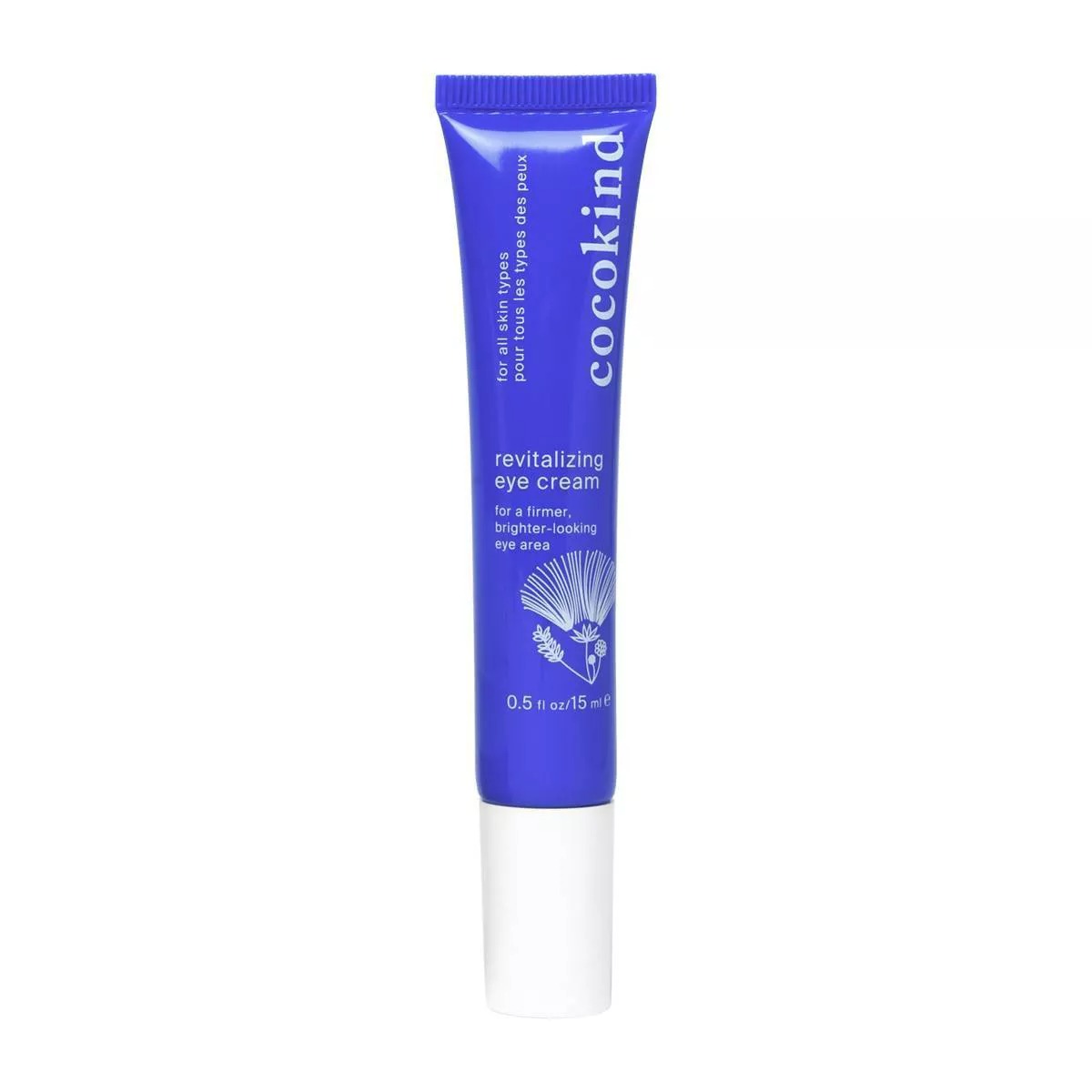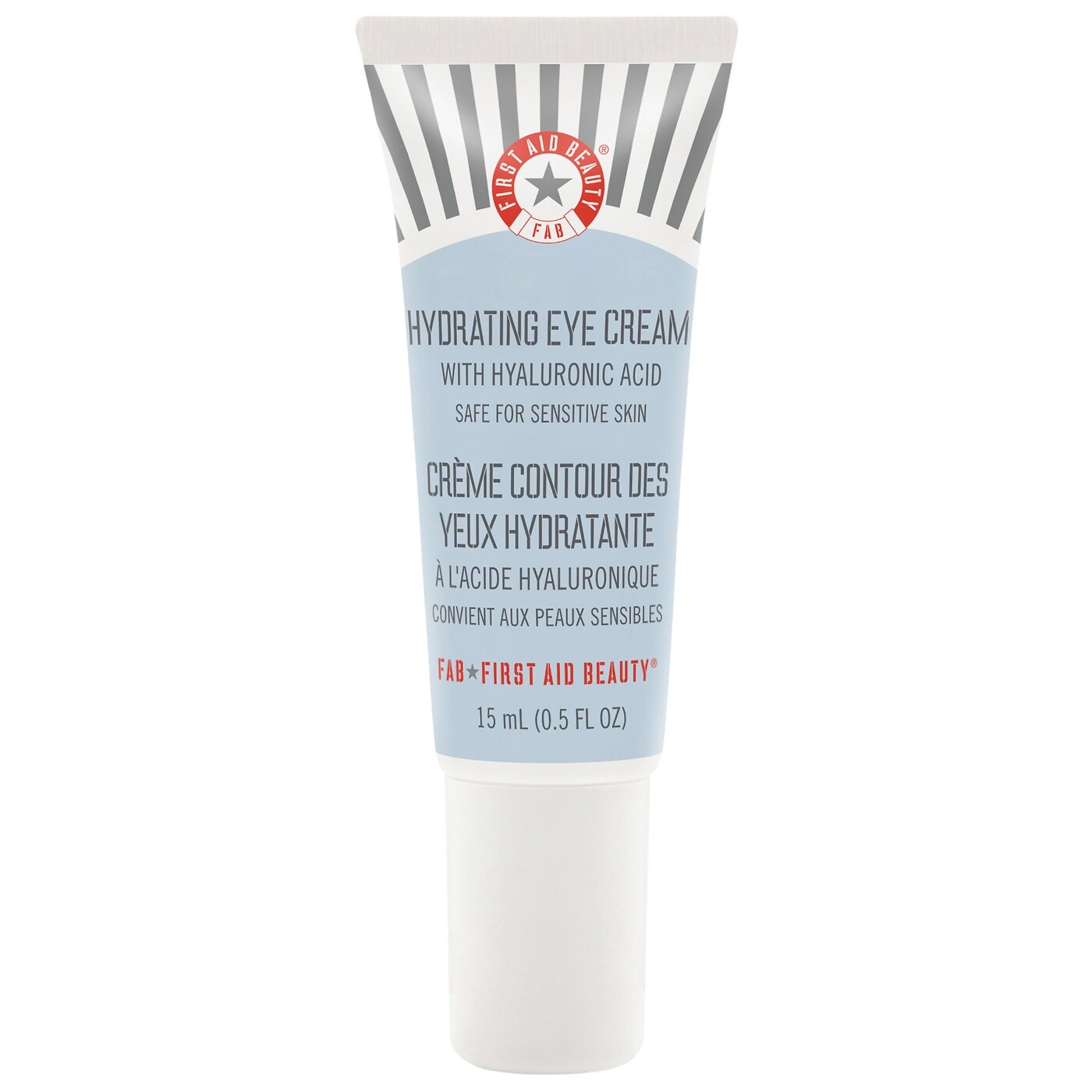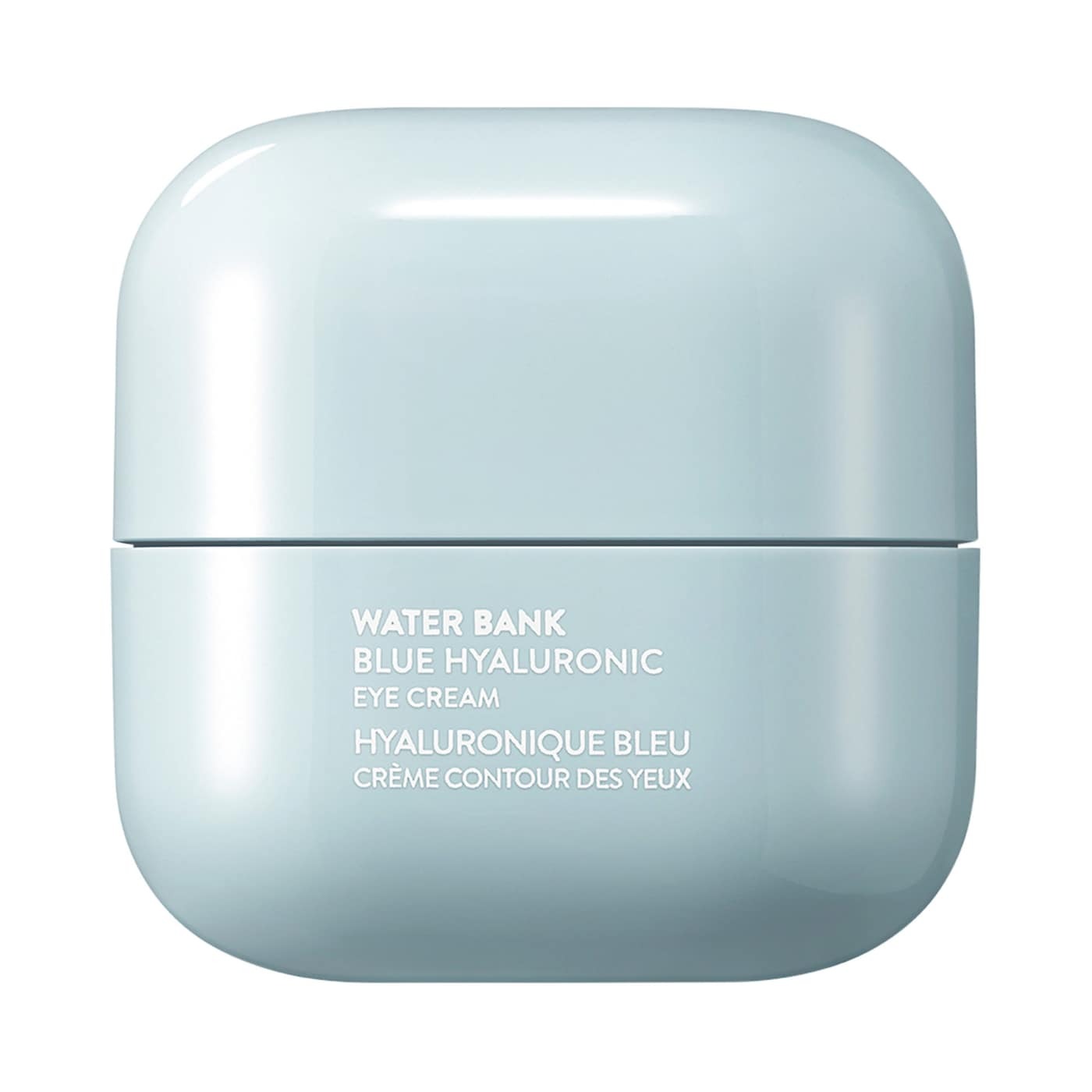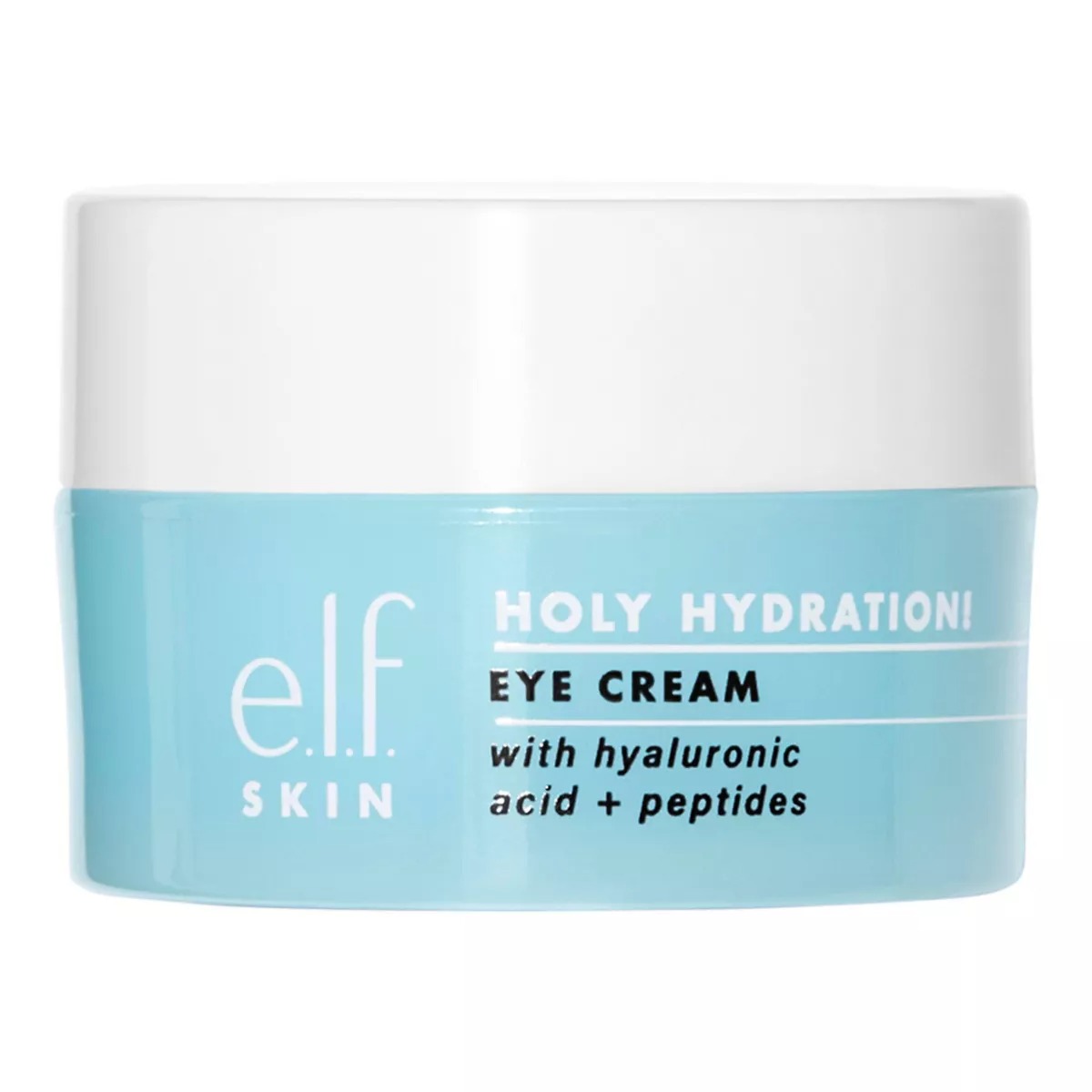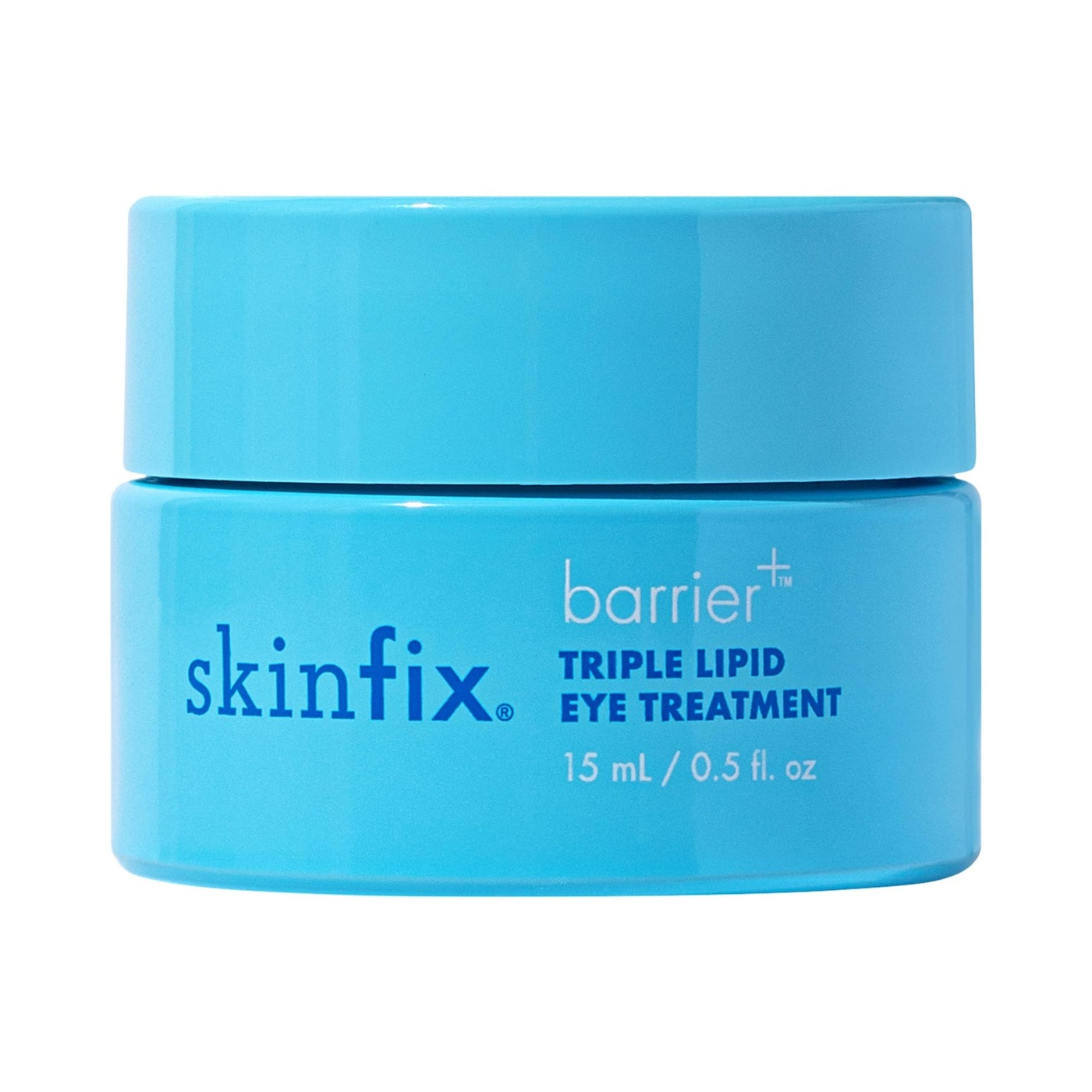These 15 Hydrating Eye Creams Will Plump, Smooth, and Refresh Tired Eyes
In winter, my skin resembles a desert, and I immediately begin applying all the creams, serums, and moisturizers I have in my vanity cabinet. The dryness creeps onto my eyelids, too, and I think it causes my eyes to look tired and my dark circles to look even more pronounced. To make matters worse, the dryness can be irritating, causing the skin on my eyelids to be even more sensitive than normal. What a great time, right?
Since I've been dealing with this problem for a couple of years, I have my dryness-fighting routine down. I use gentle makeup removers, cleansers, and exfoliants to avoid stripping my skin of its precious natural oils. I use my thickest moisturizers and cooling serums that sink right into my skin. And I try to be extra minimal with makeup when my skin is going through an exceptionally dry patch. The fewer products I have on my face, the better.
While I have been able to get the rest of my face under control, I'm still figuring out how to deal with the dryness around my eyes. I've found some products that work but don't have it down pat quite yet. So I went to an expert to get her tips on soothing that area.
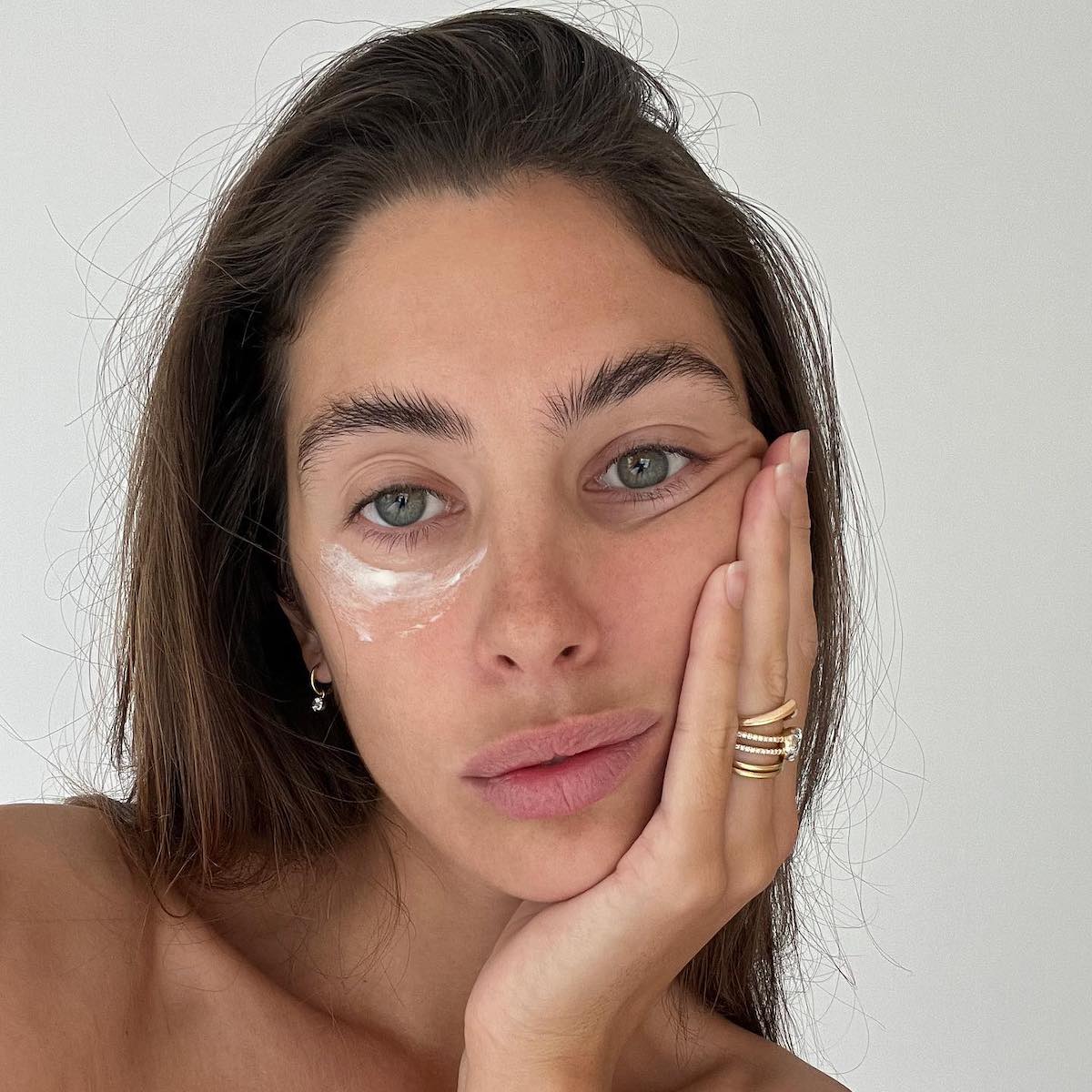
"The skin around the eye, known as the periocular skin, is unique, fragile, and sensitive," Robyn Gmyrek, a board-certified dermatologist at Park View Laser Dermatology, explains. "It is the thinnest skin on the face, and it has fewer oil glands, making it more prone to dryness. If we allow this delicate skin to get dried out, this will compromise the skin barrier, leading to an increased risk of inflammation or irritation and even infection. In addition, the periocular skin is usually the first area where we see signs of aging, starting in the third decade of life. If dryness, inflammation, and irritation occur, this will lead to even more extensive and premature skin aging."
Luckily, there are some things you can do to prevent dryness. Gmyrek says the best thing you can do is focus on strengthening the skin barrier since a damaged barrier won't be able to hold on to moisture. You can do this by using gentle, non-irritating skincare products, including a hydrating eye cream. Products that irritate the skin are no-gos since irritation can cause microscopic breaks in the skin surface and compromise the skin barrier.
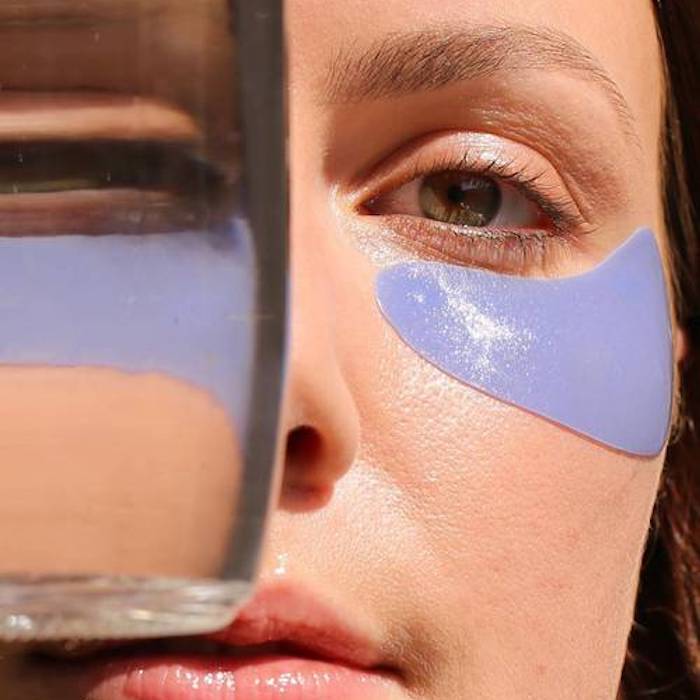
Ingredients to Look For in a Hydrating Eye Cream
When shopping for an eye cream, you want to choose a product that is clearly labeled as such. Gmyrek says you should treat the area sensitively, and knowing that the product is specifically formulated for that delicate area is your best bet. "Though the FDA does not specifically regulate testing to be done in order to label a cream specific for the skin of the eye area, most companies do their own testing on this delicate skin to minimize any risk to the consumer of irritation," she adds. "I recommend that you always use only a small amount of cream at first to be sure you are not allergic. If any irritation occurs, discontinue use immediately."
If you are looking for an eye cream for hydrating purposes and not anti-aging reasons, Gmyrek recommends avoiding retinol, which can be drying.
As for ingredients, you'll want eye creams that include occlusives, humectants, emollients, and/or barrier ingredients. (Gmyrek breaks down what those terms mean below.) She notes that your eye cream doesn't have to contain all of these ingredients, but most eye creams contain some combination of them.
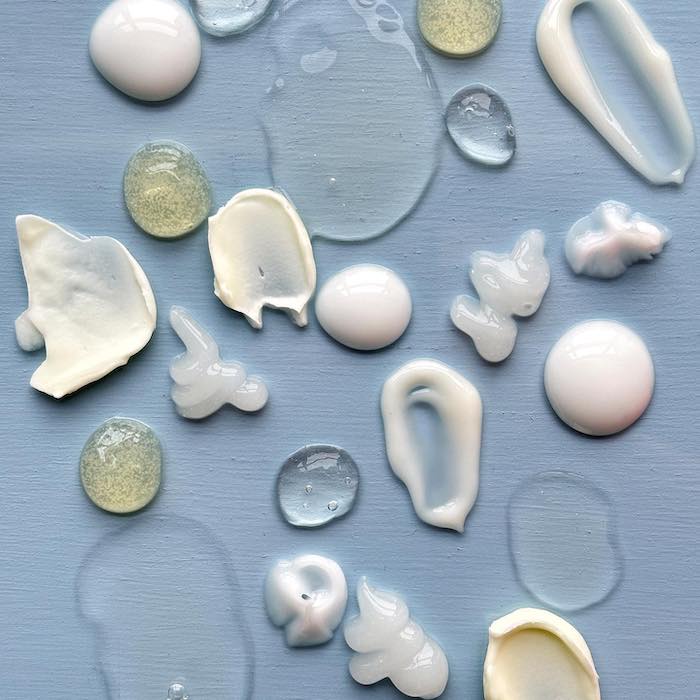
Occlusives: These form a barrier over the skin surface to prevent the evaporation of water, thereby reducing transepidermal water loss. Examples include dimethicone, petroleum, shea butter, and colloidal oatmeal.
Humectants: These attract water and moisture. Humectants allow water from the deeper level of the skin—the dermis—to absorb into the upper layer of the skin (the epidermis). Water is also attracted and absorbed by the environment, but this is minimal. Examples include glycerin, hyaluronic acid, glycerol, urea, lactic acid, shea butter, and colloidal oatmeal.
Emollients: These boost softness and plasticity. They smooth the feel of the skin by settling into the spaces between the dead skin cells that sit on the surface, lubricating those areas. Examples include dimethicone, shea butter, colloidal oatmeal, and coconut oil.
Barrier Repair Ingredients: These help to keep the skin barrier healthy so that moisture is not lost and dryness does not occur. Examples include ceramides, lactic acid, niacinamide (vitamin B3), and cholesterol.
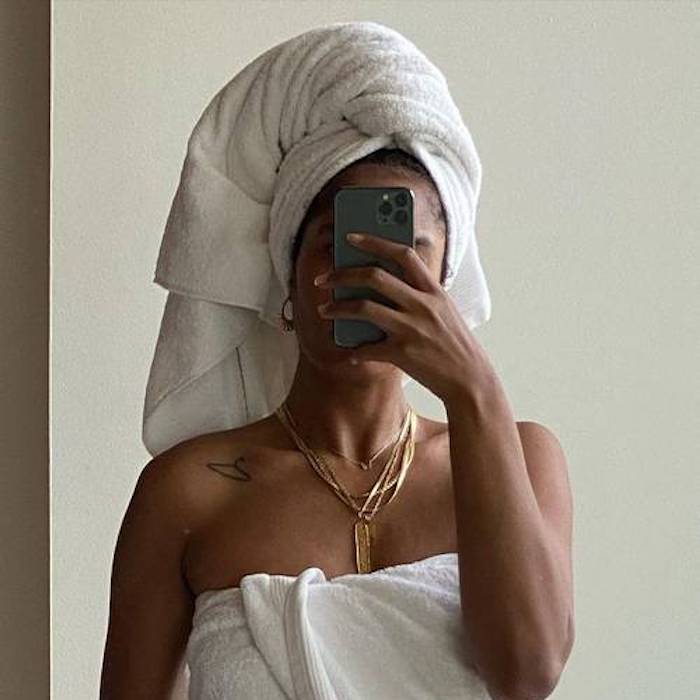
Once you find the eye cream that works for you, Gmyrek recommends using the product daily to prevent moisture evaporation from the skin. "This will help to keep the skin surface from cracking, which would lead to further loss of moisture," she adds.
Ready to plump, smooth, and refresh your eyes? I know I am. Here are some recommendations for hydrating eye creams from Gmyrek and our editors.
Best Overall: Neutrogena Hydro Boost Gel-Cream
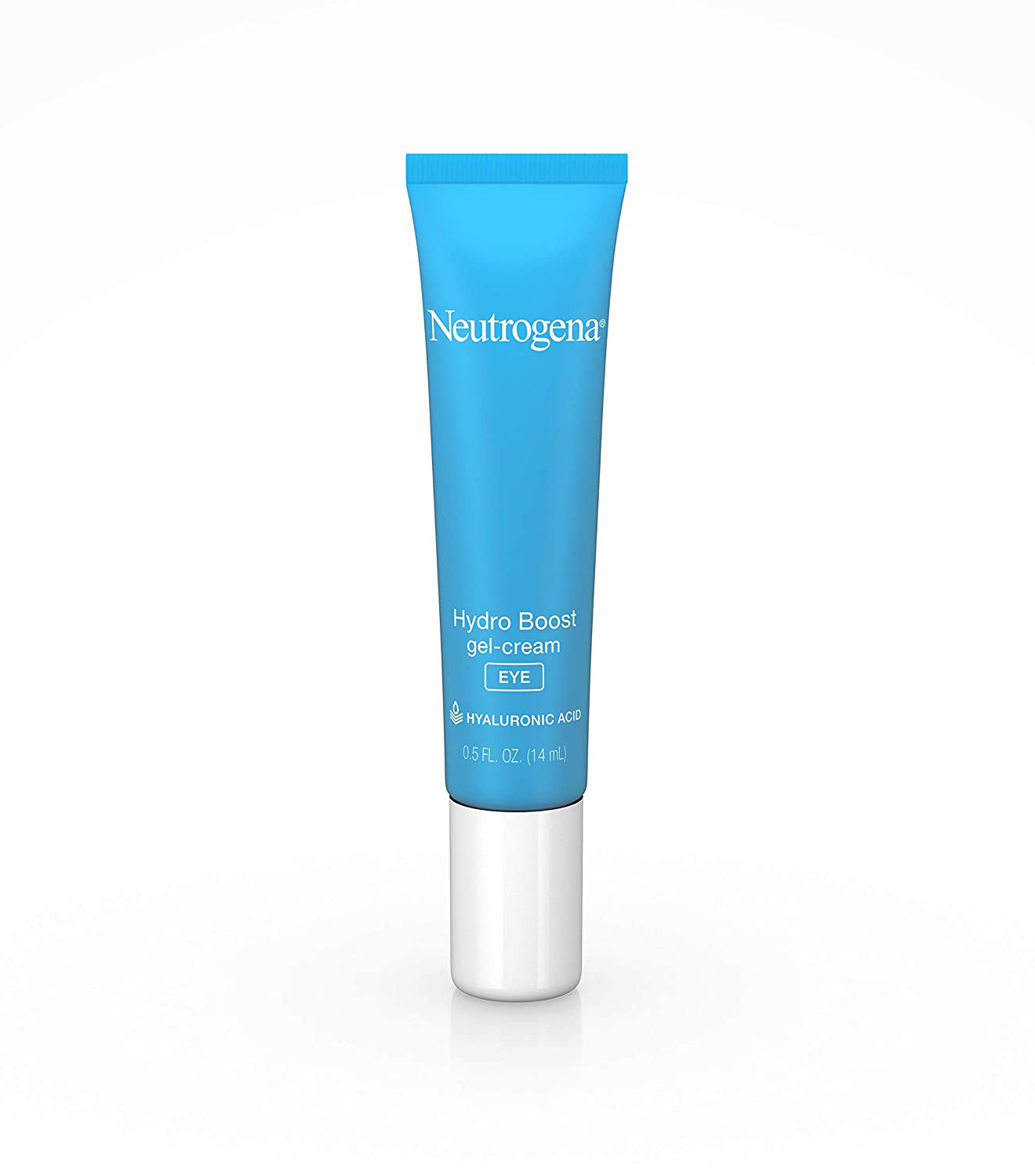
Gmyrek says this gel cream contains many different ingredients to hydrate and protect the skin, including occlusives like beeswax and isoparaffin, humectants like glycerin and hyaluronic acid, and emollients like dimethicone and cetearyl olivate (a fatty acid derived from olive oil). It's also lightweight and noncomedogenic, which means it's a plus for those with acne-prone skin.
Pros: Hydrating formula, lightweight texture, feels soothing and cooling, suitable for all skin types.
Cons: None.
Product Specs:
-Hyaluronic acid–infused formula
-0.5 fluid ounces
-Suitable for all skin types but especially acne-prone skin
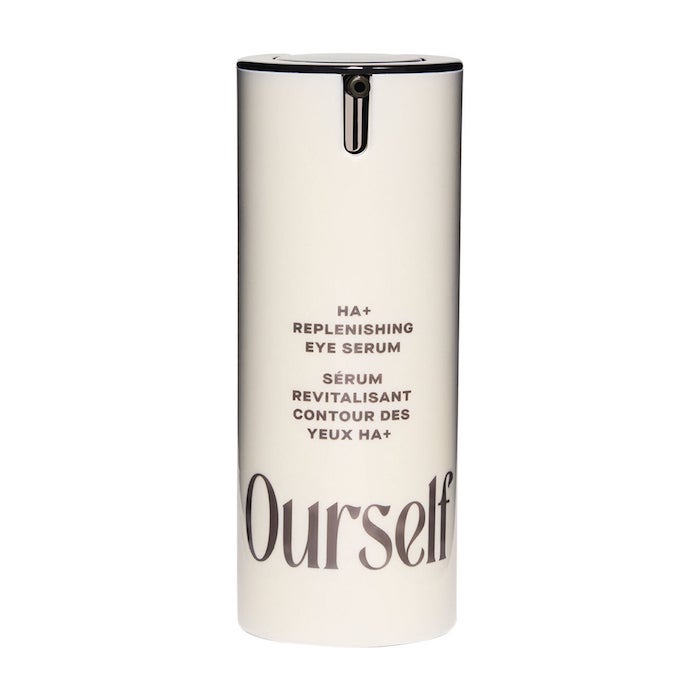
This eye cream contains a hyaluronic acid complex, as well as vitamin C, niacinamide, and peptides to visibly plump, smooth, firm, brighten, and hydrate the eye area. It's expensive, but it packs a punch. It's one of those rare eye creams that do a little bit of everything for holistic eye-area improvement.
Pros: Hydrating formula, lightweight texture, improves dark circles, puffiness, and loss of elasticity.
Cons: Pricey.
Product Specs:
-Hyaluronic acid–infused formula
-0.5 fluid ounces
-Suitable for all skin types but especially aging skin
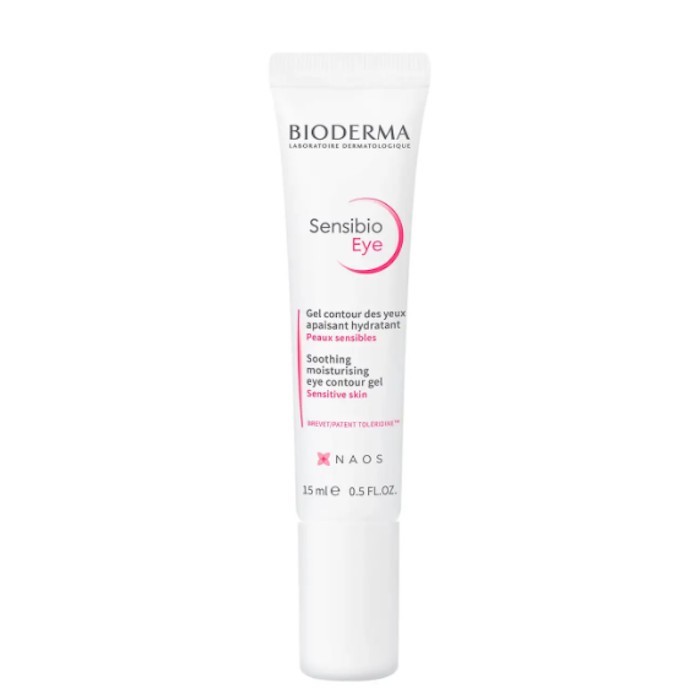
This hydrating eye cream from the French pharmacy brand Bioderma proves you don't have to spend a lot of money to get expensive-looking results. With hyaluronic acid, caffeine, and vitamin E, it hydrates, reduces puffiness, and smoothes fine lines and wrinkles all with a single swipe. Did I mention it's safe for sensitive skin and contact lens wearers?
Pros: Hydrating formula, lightweight texture, improves puffiness.
Cons: None.
Product Specs:
-Hyaluronic acid, caffeine, and vitamin E–infused formula
-0.5 fluid ounces
-Suitable for all skin types
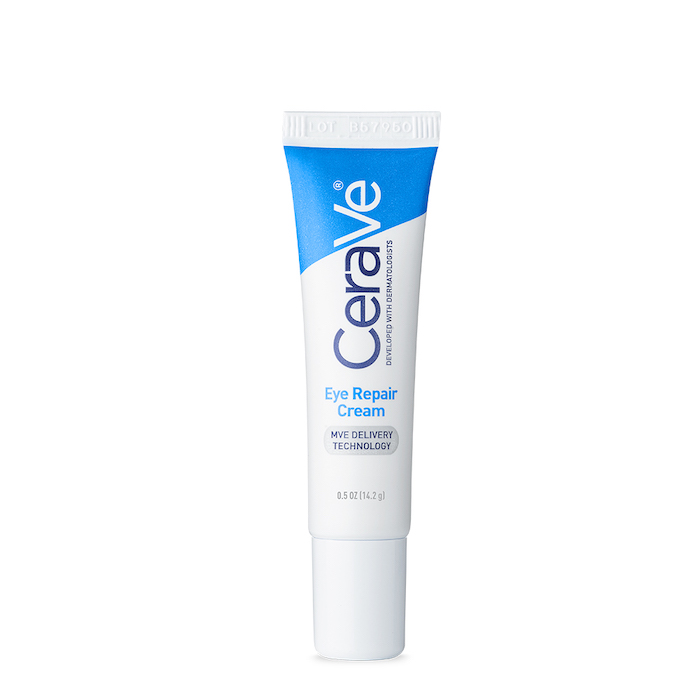
The price point can't be beaten with this one, Gmyrek says. She adds that it has effective ingredients in all categories of moisturizing: capric triglyceride (an occlusive); glycerin, hyaluronic acid, and sorbitol (humectants); dimethicone and almond oil (emollients); and niacinamide, ceramide, and cholesterol (for skin barrier repair).
Pros: Hydrating formula, affordable, suitable for all skin types.
Cons: None.
Product Specs:
-Formula includes glycerin, hyaluronic acid, and ceramide
-0.5 fluid ounces
-Suitable for all skin types
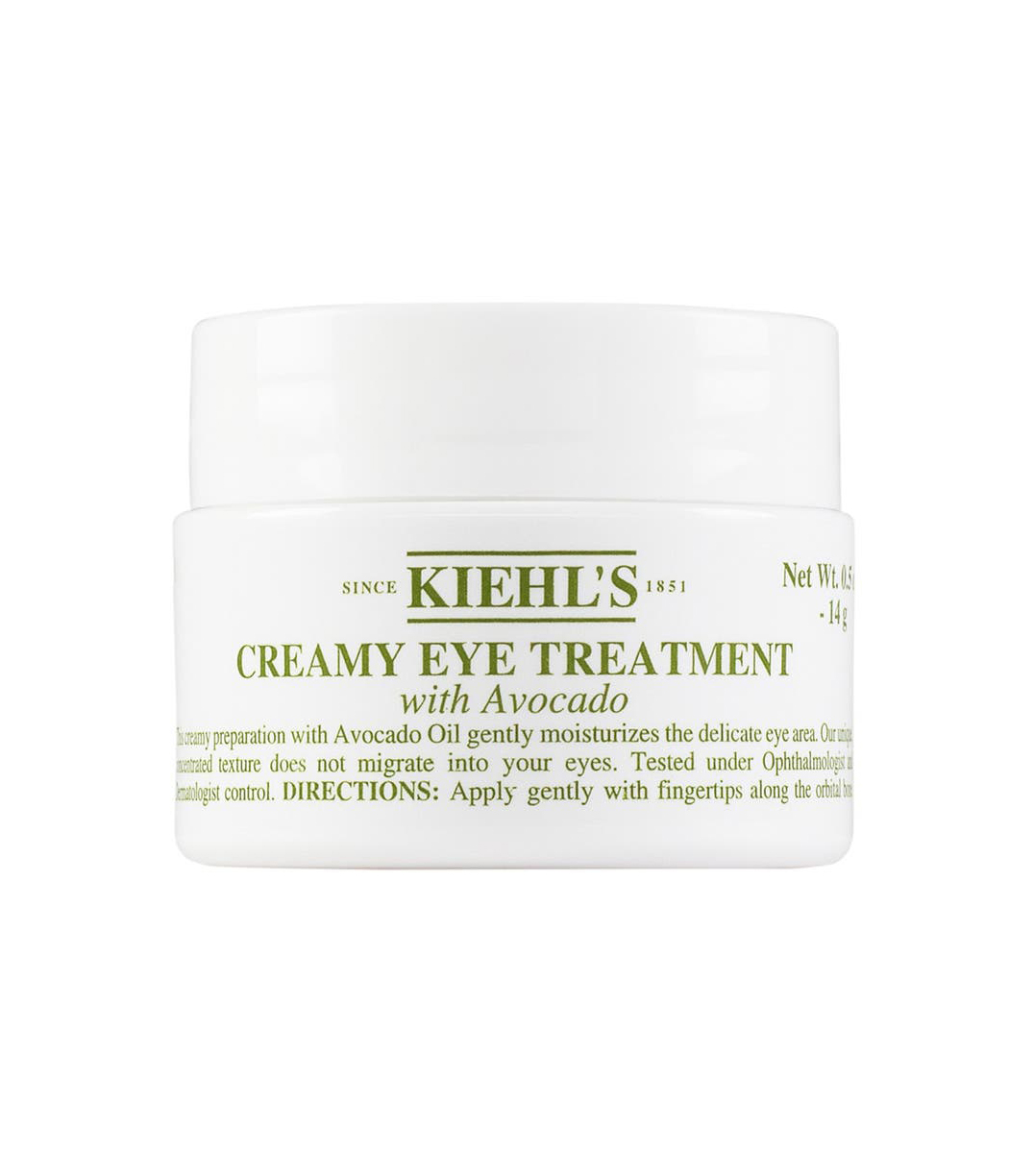
"This is a luxurious and very effective cream," Gmyrek says. "It feels so great going on and gives immediate moisture without being very heavy or thick. It contains beta-carotene as an antioxidant and also the following moisturizing ingredients: shea butter, sorbitan, avocado oil, dimethicone, jojoba oil, isocetyl stearoyl stearate, avocado oil, sunflower seed oil, and citric acid."
Pros: Hydrating and soothing formula, luxe texture.
Cons: None.
Product Specs:
-Avocado oil–infused formula
-0.5 fluid ounces
-Suitable for all skin types but especially dry, flaky skin
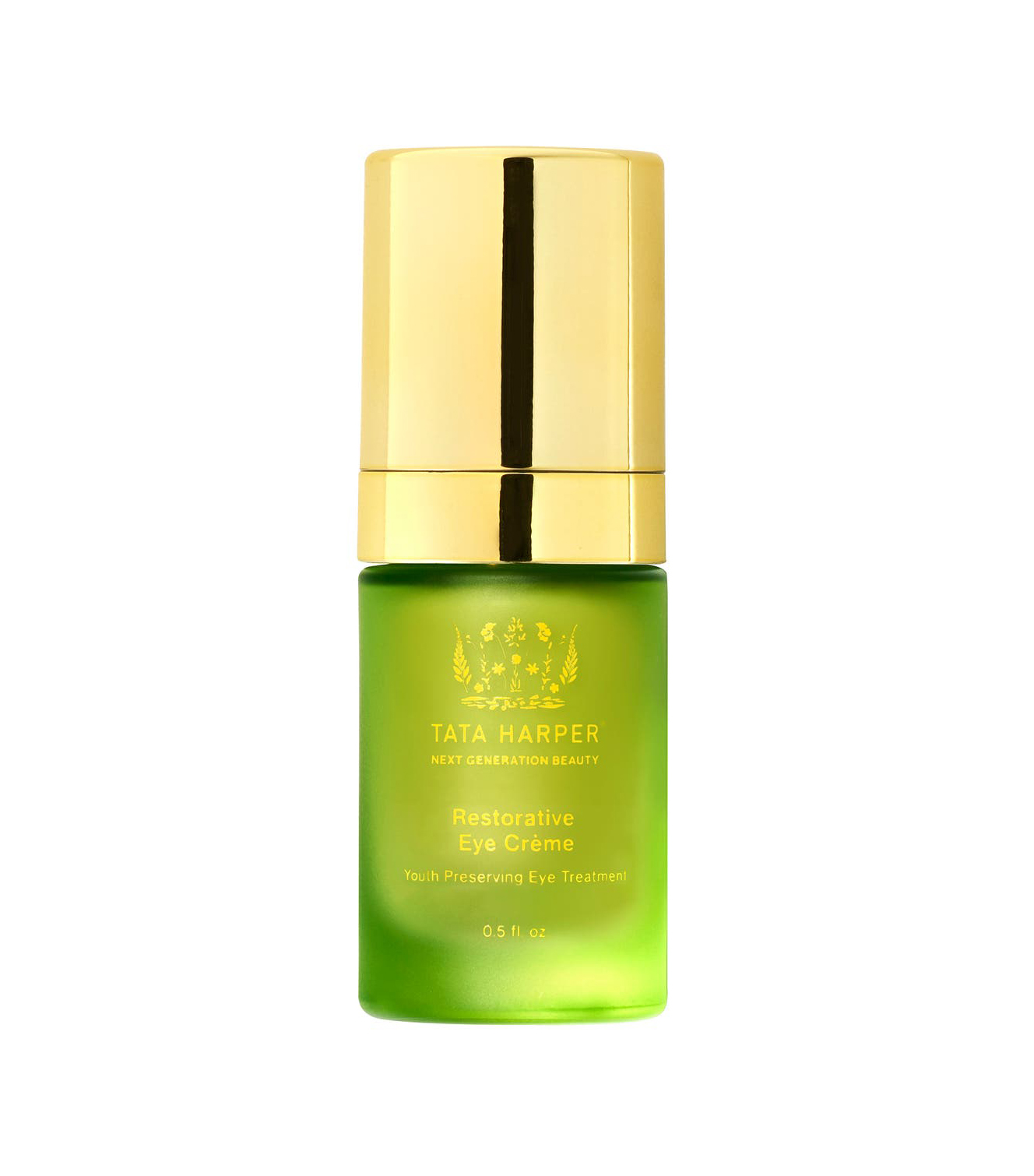
Tata Harper's eye cream contains carrot seed oils and safflower oleosomes (a source of vitamin E) to moisturize the skin around the eyes. It also contains a daffodil bulb to maintain the skin barrier. Along with hydrating the eye area, it will work to reduce the appearance of wrinkles and puffiness.
Pros: Hydrating and wrinkle-reducing formula.
Cons: Pricey.
Product Specs:
-Formula includes carrot seed oil and date palm extract
-0.5 fluid ounces
-Suitable for all skin types but especially aging skin
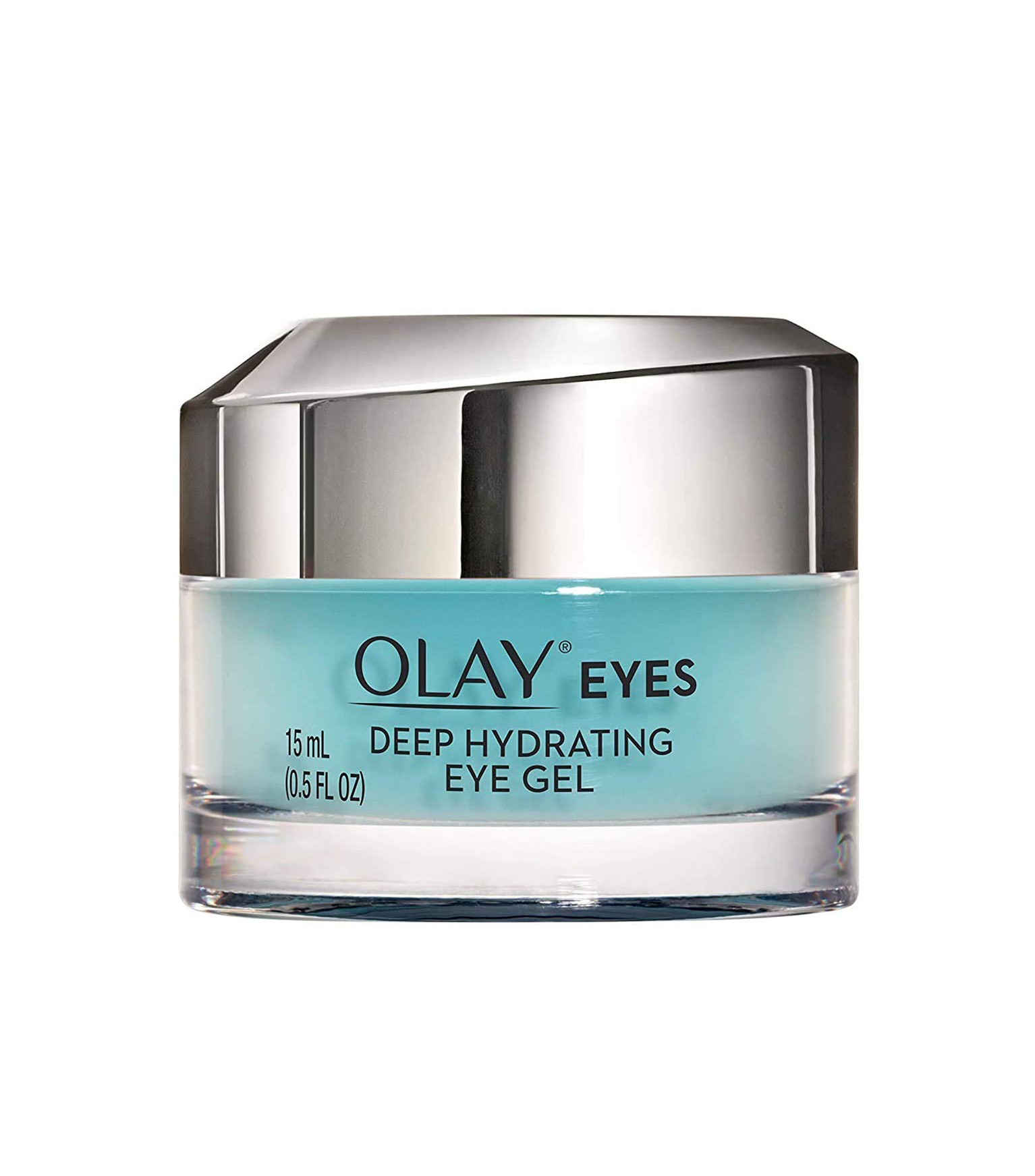
The gel formula is so soothing on tired and dry eyes. It contains hyaluronic acid, peptides, provitamin B5, and cucumber extract to hydrate, plump, and rejuvenate the skin.
Pros: Hydrating and fragrance-free formula, lightweight texture, feels soothing and cooling.
Cons: Some might prefer a thicker, richer formula.
Product Specs:
-Formula includes hyaluronic acid and peptide
-0.5 fluid ounces
-Suitable for all skin types but best for tight, dehydrated skin
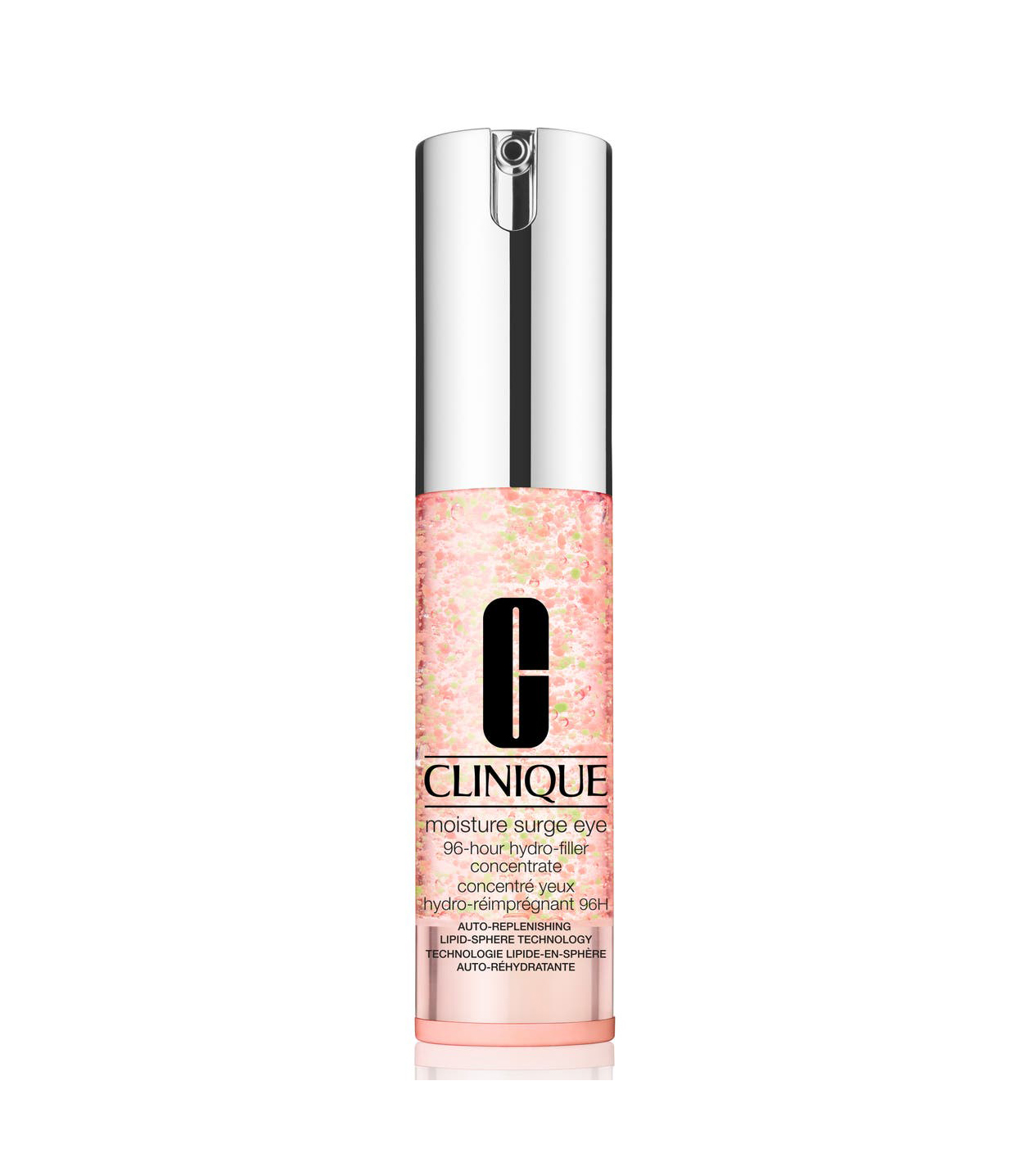
More of a gel-serum than a traditional cream, Clinique's Moisture Surge Concentrate is one of my favorites for dealing with dry skin. It's so light and cooling and absorbs quickly. Plus, it keeps the eye area hydrated for up to 96 hours. Ingredients include aloe butter, glycerine, and antioxidants.
Pros: Hydrating and plumping formula, lightweight texture, feels soothing and cooling.
Cons: Some might prefer a thicker, richer formula.
Product Specs:
-Antioxidant-infused formula
-0.5 fluid ounces
-Suitable for all skin types but best for tight, dehydrated skin
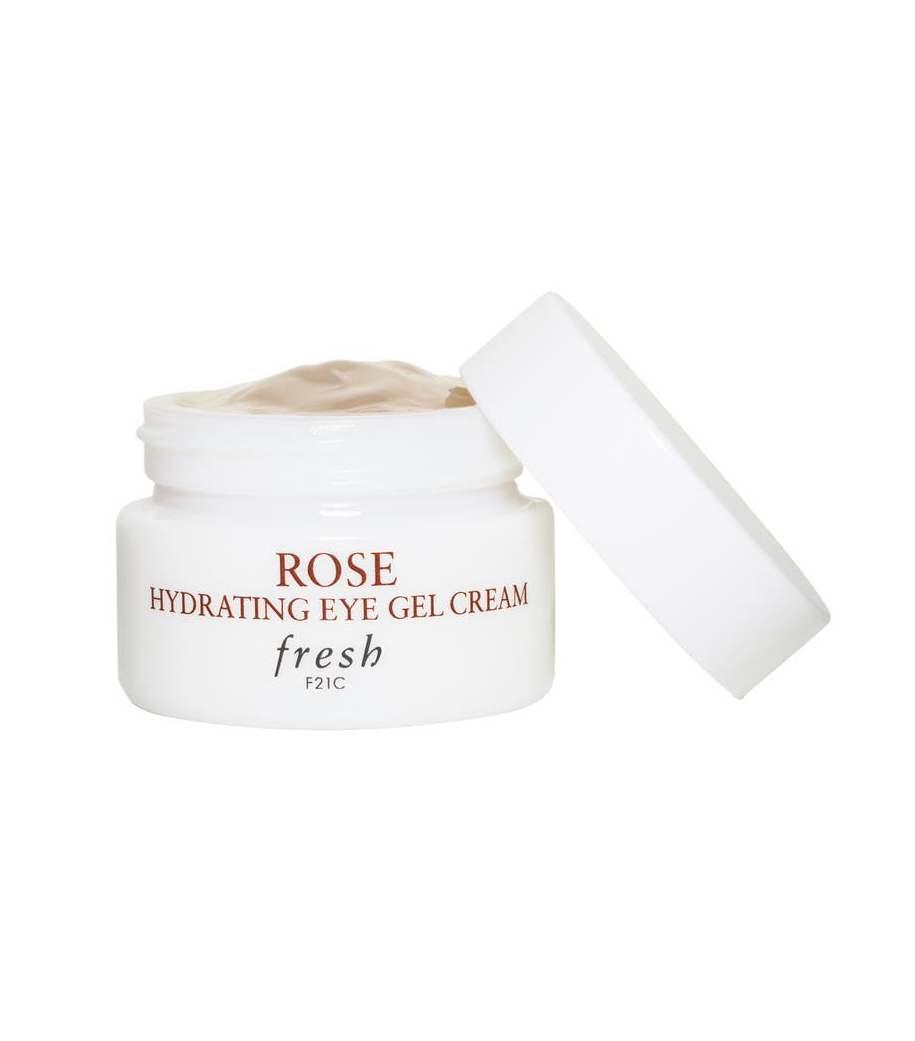
I'm also a fan of this gel-cream from Fresh. The gel feels so relaxing and soothing on the tired, angry skin around my eyes. But the best part is it sinks into the skin pretty quickly and doesn't leave any stickiness. It has nourishing ingredients like rose water, rose oil, cucumber extract, and hyaluronic acid.
Pros: Hydrating and plumping formula, feels soothing and cooling, wears well under makeup.
Cons: Some might prefer a thicker, richer formula.
Product Specs:
-Formula includes rose water and cucumber extract
-0.5 fluid ounces
-Suitable for all skin types but especially irritation-prone skin
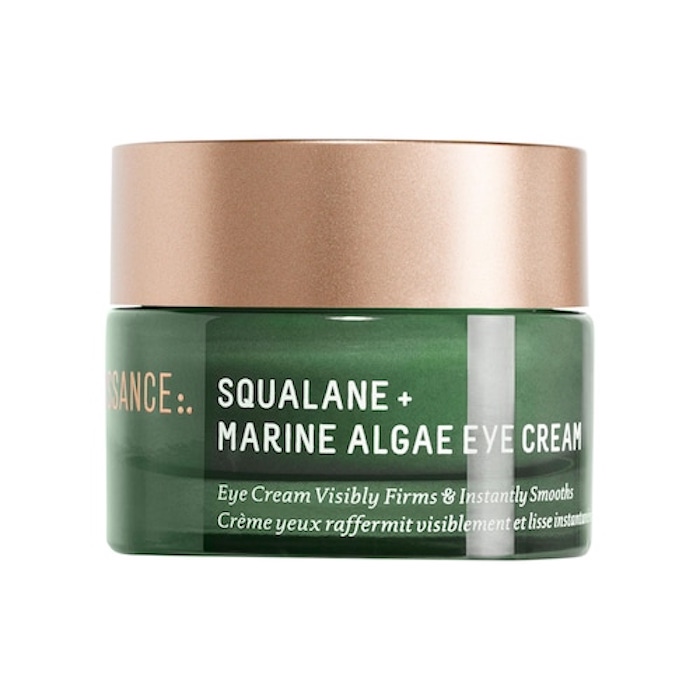
This rich cream is super hydrating with squalane to lock in moisture. It's also got a marine algae complex to minimize the appearance of fine lines and wrinkles and paracress extract to smooth and firm the skin.
Pros: Hydrating and firming formula.
Cons: Some might prefer a more lightweight texture.
Product Specs:
-Formula includes squalane and marine algae
-0.5 fluid ounces
-Suitable for all skin types but especially aging skin
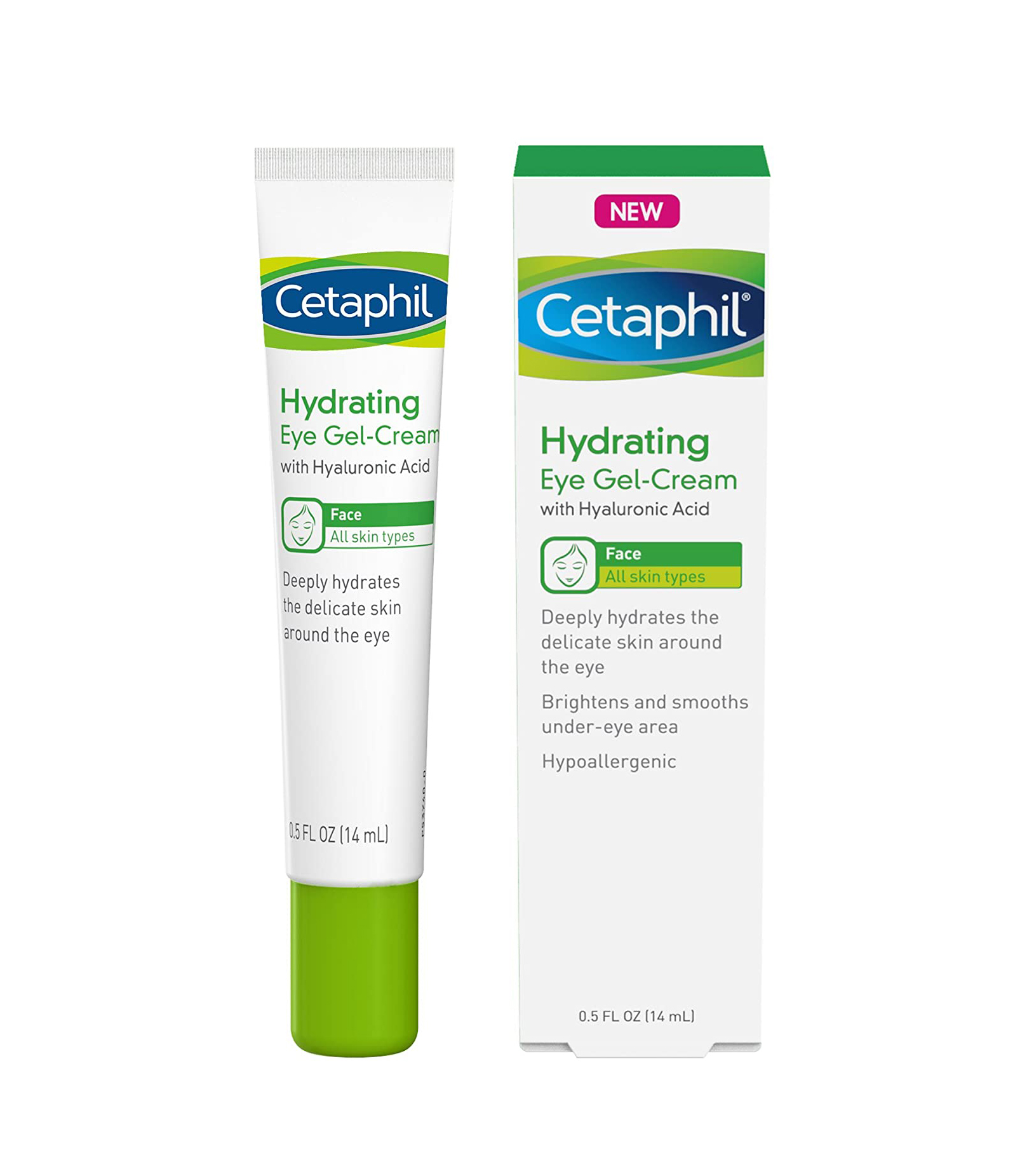
Another drugstore find that doesn't disappoint, Cetaphil's gel-cream is formulated with hyaluronic acid to lock in moisture and licorice extract and a vitamin complex to brighten the under-eye area. It's hypoallergenic and gentle, which is much needed when you're dealing with this sensitive area of the face.
Pros: Hydrating and brightening formula, good for sensitive skin.
Cons: None.
Product Specs:
-Formula includes hyaluronic acid and licorice extract
-0.5 fluid ounces
-Suitable for all skin types but especially those with dark circles
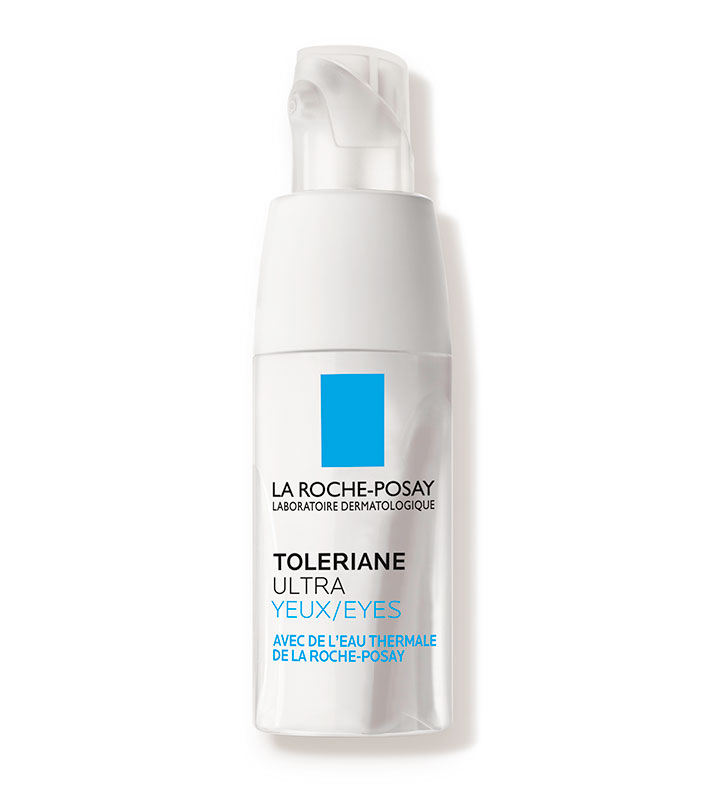
If you're experiencing dry eyelids like I am, you'll want to pay attention to this eye cream. It's specially formulated for that and sensitive eyes. Its key ingredients are thermal spring water, niacinamide, and shea butter.
Pros: Hydrating and soothing formula, good for sensitive skin.
Cons: None.
Product Specs:
-Formula includes thermal spring water and niacinamide
-0.5 fluid ounces
-Suitable for all skin types but especially those with sensitive skin
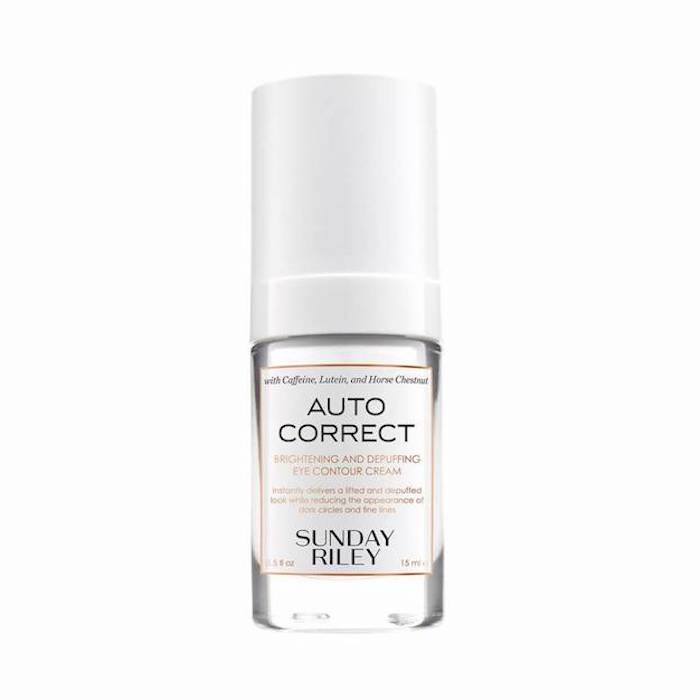
Sunday Riley's eye cream is packed with ultra-hydrating ingredients such as cocoa and shea butter, watermelon rind extract, and sodium PCA. It also contains caffeine and Brazilian ginseng to reduce dark circles and puffiness. Your eyes will look more lifted and brighter after applying this one morning and night.
Pros: Hydrating and brightening formula, good for dark circles and puffiness.
Cons: Pricey.
Product Specs:
-Formula includes caffeine and ginseng
-0.5 fluid ounces
-Suitable for all skin types but especially those with dark circles and puffiness
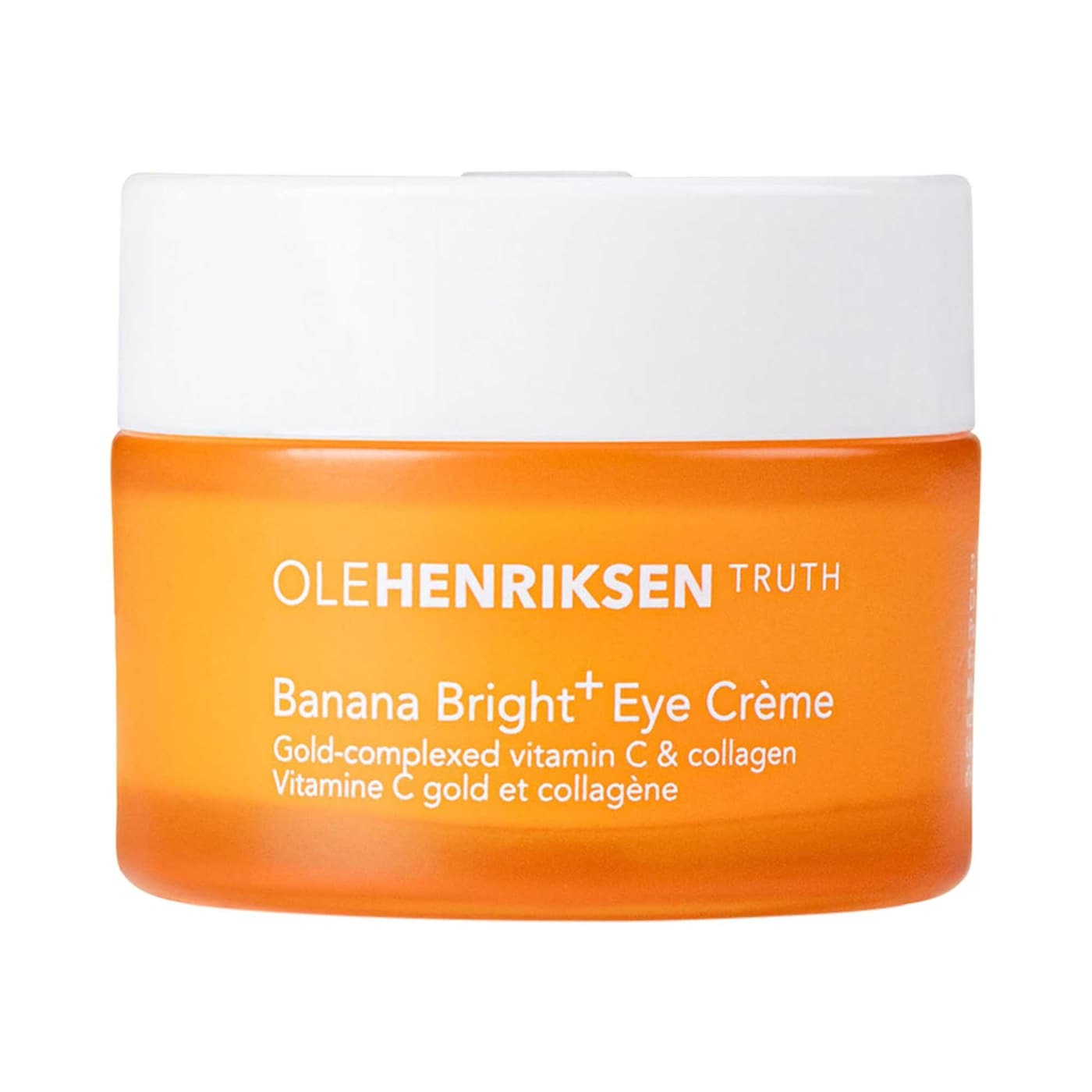
The vitamin C in this cream helps brighten dark circles and target the signs of aging. But it's also deeply hydrating thanks to collagen, shea butter, jojoba oil, and glycerin.
Pros: Hydrating and brightening formula, good for dark circles and aging skin.
Cons: Pricey.
Product Specs:
-Formula includes vitamin C and collagen
-0.5 fluid ounces
-Suitable for all skin types but especially those with dark circles and aging skin
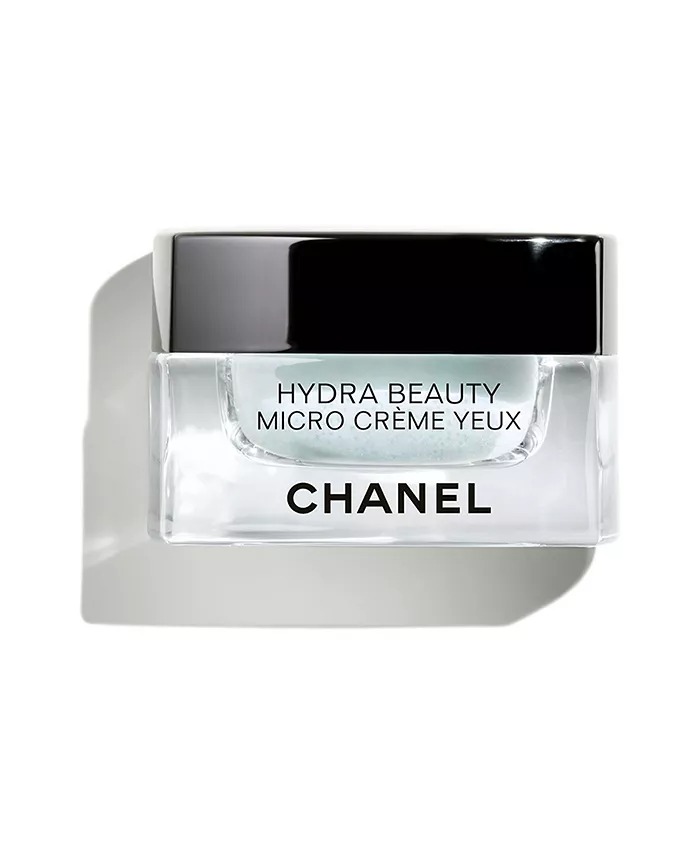
This Chanel eye cream is a must-have for locking in moisture, reducing the appearance of puffiness, and diminishing dark circles using a powerful blend of white camellia extract and algae extract.
Pros: Hydrating formula, good for dark circles and puffiness.
Cons: Pricey.
Product Specs:
-Camellia extract and algae-infused formula
-0.5 fluid ounces
-Suitable for all skin types but especially those with dark circles, puffiness, and aging skin
Shop More Eye Cream Favorites
This article was originally published at an earlier date and has been updated.
Sarah is lifestyle writer and editor with over 10 years of experience covering health and wellness, interior design, food, beauty, and tech. Born and raised in Los Angeles, she attended New York University and lived in New York for 12 years before returning to L.A. in 2019. In addition to her work at Who What Wear, she held editor roles at Apartment Therapy, Real Simple, House Beautiful, Elle Decor, and The Bump (sister site of The Knot). She has a passion for health and wellness, but she especially loves writing about mental health. Her self-care routine consists of five things: a good workout, “me” time on the regular, an intriguing book/podcast/playlist to unwind after a long day, naps, and decorating her home.
